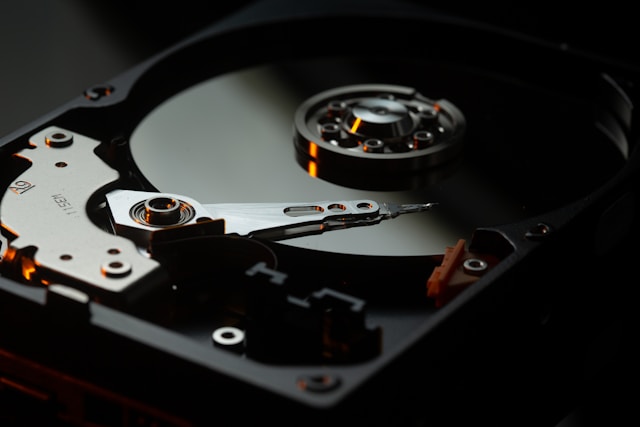Seagate Chia-gate An investigation by German news outlet Heis
  |
Seagate Chia-gate
An investigation by German news outlet Heise has revealed a growing number of complaints from customers claiming their brand-new Seagate hard drives are actually used.
The outlet suspects these drives may have been recycled from Chia mining farms in China and resold as new. Seagate reportedly told Heise that these used drives are being resold through unofficial markets, not by its authorized distributors.


Chia farming, introduced by the Chia Network in 2021, was a form of cryptocurrency mining that used hard drive storage. To put it simply, the more storage they had, the more rewards they got.
The idea took off, especially in China, where demand for hard drives (HDDs) and solid-state drives (SSDs) surged, leading to supply shortages for manufacturers like Seagate. Chia’s process was particularly harsh on SSDs, which wore out quickly, making HDDs the preferred choice for long-term farming. Bram Cohen, the co-founder of Chia Network, argues that Chia mining “puts very little” wear on hard drives.
However, Chia farming is not as lucrative as it was during its glory days. Its cryptocurrency, XCH, is now trading at around $13, far below its 2021 prime when it peaked at $1,645.
Complaints are no longer limited to Germany, Heise reported, as tips from Thailand, Australia, and Japan are now reporting similar issues.
Another Japan-listed firm announces Bitcoin investment
Japanese blockchain gaming company Gumi has announced a 1 billion yen ($6.5 million) investment in Bitcoin, aiming to enhance its node operation business through staking the asset.
The Tokyo-listed firm said in a Feb. 4 statement that its board approved the move as part of a strategy to allocate surplus funds into Bitcoin. Gumi plans to stake its holdings via Babylon, generating additional revenue from staking rewards, validator incentives and potential Bitcoin appreciation.


Gumi has been active in blockchain gaming, partnering with Sui Network in August 2024 to develop the blockchain game Brave Frontier Versus. It already has its own gaming ecosystem cryptocurrency called Oshi.
Since the Bitcoin investment announcement, Gumi’s stock price has surged over 40%, though Oshi Token saw little impact.
Gumi follows in the footsteps of Metaplanet, the Tokyo-based firm dubbed the “MicroStrategy of Asia” for its aggressive Bitcoin accumulation — a move that sent its stock soaring.
Bitcoin and blockchain appear to be particularly attracting gaming firms in Asia.
Game developer Nexon has the second-largest Bitcoin holding among listed firms in Japan thanks to the 1,717 it bought in 2021. Japanese gaming giant and PlayStation creator Sony recently launched its own Ethereum layer-2 network.
Hong Kong gaming firm Boyaa Interactive holds the title of Asia’s largest publicly listed Bitcoin whale.
Beyond Japan, the Bitcoin corporate playbook is gaining traction across Asia. In December, India’s publicly traded Jetking Infotrain adopted Bitcoin as a reserve asset, revealing it holds 12 BTC.
Read also
Features
Should you ‘orange pill’ children? The case for Bitcoin kids books
Features
Decade after Ethereum ICO: Blockchain forensics end double-spending debate
South Korea officially eases restrictions on institutional crypto investors
South Korea’s Financial Services Commission (FSC) has unveiled a roadmap to ease corporate crypto trading restrictions.


After months of deliberation, the FSC outlined a phased approach. In the first half of 2025, law enforcement agencies, charity organizations, universities, and cryptocurrency exchanges will be allowed to open real-name accounts to sell their crypto assets.
These are bank accounts linked to the legal identity of South Korean residents and are mandatory requirements to apply for fiat-to-crypto accounts at licensed exchanges. Up to now, institutions and corporations have been faced with a de facto ban from opening such accounts due to Anti-Money Laundering restrictions. South Korea’s crypto economy has long been propped up by retail investors due to the absence of corporate access.
In the second half of the year, the FSC will launch a pilot permitting select institutions to open real-name accounts. The program will be open to 3,500…
cointelegraph.com
